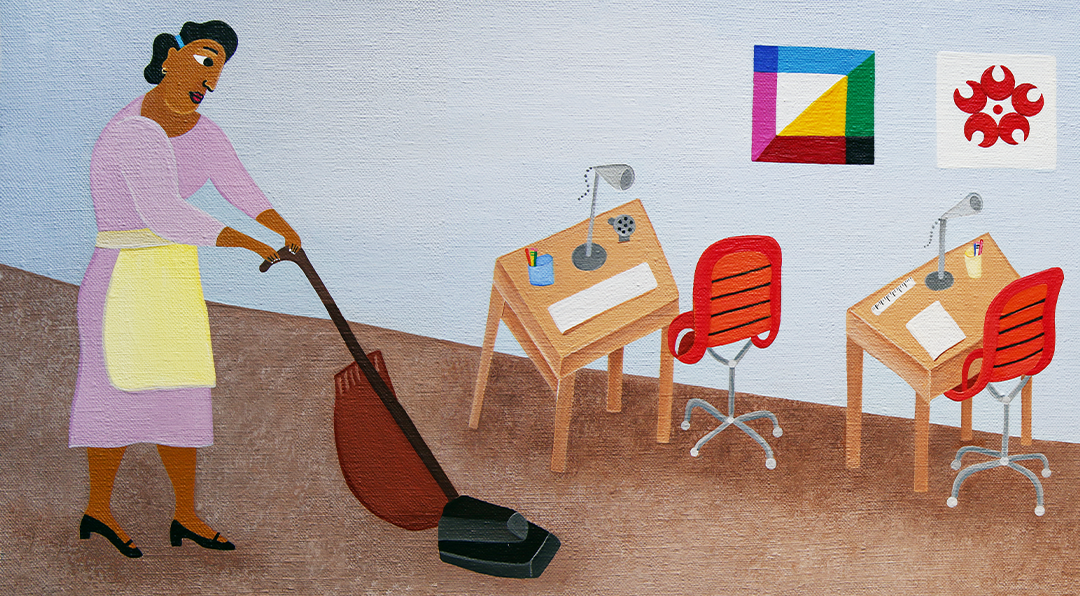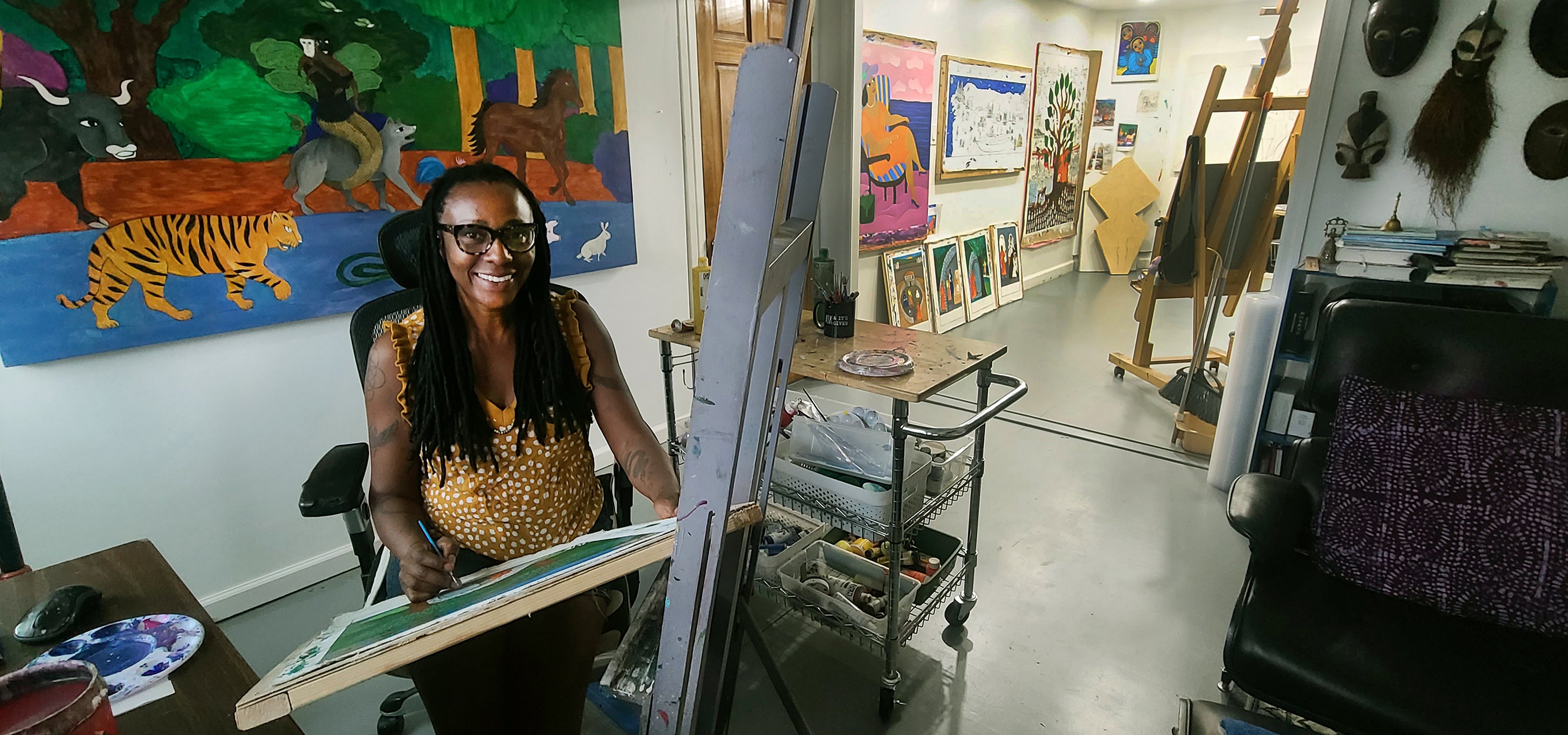
A Nanny’s Work Through Pictures and Words By Zach Frater
A Nanny’s Work Through Pictures and Words
By Zach Frater

Self-taught artist and illustrator Laura James brings her own childhood memories to life in her latest children’s book, My Mother Was a Nanny.
The story is inspired by the day-to-day life of her creative and entrepreneurial mother and is told as a series of vignettes illustrating a typical day for Mummy. It follows a nameless child tailing her busy mother as she performs the sacred work of cleaning, sewing, cooking and tending to other people’s children while also taking care of her own. While we might be quick to read the little girl in the story as little Laura, both she and the mother remain anonymous, allowing some room for the reader to insert their own narrative. To me, Mummy can be read as a stand-in for the domestic worker writ large. As such, James gives voice and insight into a person and situation we sometimes choose not to see.

My Mother Was a Nanny is an attempt by James to set the record straight on an often-maligned profession. If not maligned, certainly not celebrated, and one that usually presents a less than ideal situation for employer and employee. She touches on the fact that immigrating from the Caribbean led her mother and other relatives into domestic work in the first place. In the book, the main character’s aunt admits, “If there was work in Antigua, I would have stayed.” James’ straight approach to the reality of the situation is poignant. In our interview, the author remarks, “It isn’t a fairy tale like Mary Poppins. It is a true story by and large.”
While My Mother Was a Nanny offers readers a stunning, clearly articulated storyscape to dive into, the artist has not always been quite so clear herself on how to reconcile with certain parts of her upbringing. While grateful for her parents’ sacrifice, James admits she did not always feel that being a nanny’s daughter was a positive thing:
“It’s not ideal. We’re picturing a situation that’s not ideal. I terribly resented my parents because my mother was so busy! As a child I saw my mother as a blur, like a whirlwind. And after I actually wrote this down, I really understood why.”

Through James’ young protagonist, we watch Mummy, an Antiguan immigrant, work tirelessly at caring for others, and those others are usually White. Though written from a sympathetic point of view, this intention does not mask what is inherently fraught about domestic work. Namely the uncomfortable racial dynamics it often highlights. When I asked James why the topic of domestic work is so taboo, she admitted, “People don’t want to think of being a servant, or even a master of a servant. It’s uncomfortable.”

Through the process of creating and distributing this book, James hopes to open up dialogue around this work and get rid of the taboo surrounding “the help.” James wants this book to be at the very least a conversation starter, tied up as it is in timeless issues involving race, class, immigration and labor. While it might at first appear niche, a brief stroll through Chelsea, the Upper East Side or anywhere else nannies are employed shows you that this social phenomenon is definitely widespread enough to be mainstream, and it’s about time we start having more honest conversations about it with the parents, children, and domestic workers all in the same room. With the book functioning as an homage to the domestic worker, James is very clear on what the potential social impact of the book could be:
“I think nannies, parents and children will see themselves in the story. It’s not all good, but maybe we can start a conversation. Maybe a child will ask their nanny, ‘Oh, do you have a child?’ And they can talk about it. The idea is to have everybody appreciate one another a little more.”
To read the full article, visit the Brooklyn Public Library website.
“My Mother Was a Nanny: Paintings from the Book by Laura James” is on view at the Brooklyn Public Library until January 28, 2024.

